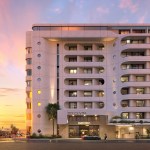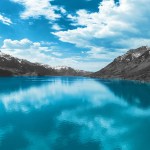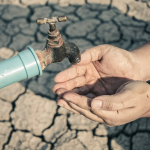As Former US President Barack Obama said during his speech at the Nelson Mandela Annual Lecture in Johannesburg yesterday, progress has bypassed far too many parts of the globe and far too many communities that need progress the most.
As the world’s largest crowd-sourced, public resource project, Wikimania hopes to examine some of the factors that have held much of Africa back from contributing more widely to Wikipedia. Its an entity that thrives on the efforts of individuals who come together to share knowledge.
Currently, close to 200,000 active contributors create articles on a variety of subjects every month. But a lot of that content serves people who already have established sources of knowledge. This is not the case in Africa and other parts of the world, like Asia or Latin America.
The Wikimedia community recently adopted a new and ambitious strategy that aims to bring content and knowledge equity to everyone, democratising access to content and ironing out the gaps and inherent bias in knowledge that are currently the sum of the contributors’ parts.
What this amounts to is a massive drive to bring new editors on board, with a focus on encouraging as many new women editors and editors from Africa, South America and Asia as possible. Essentially, Wikipedia needs more editors from all walks of life.
Locally, President of the Wikipedia ZA chapter, Douglas Scott, highlights the aspect of incorporating non-Western topics. “We are missing a great deal of locally relevant content about Africa, particularly that which is gathered from African perspectives or shared in African languages. The same could be said for indigenous knowledge and local knowledge from many places outside the Global North, much of which is still missing or written from Western perspectives,” he said.
Scott believes that these challenges lie in software localisation, in how data is structured, or even in the very forms of knowledge that Wikimedia has defined as “reliable” (text-based, rather than oral).
“These are all issues we need to contend with in order to incorporate more diverse kinds of knowledge,” Scott said.
With a multitude of unique factors shaping some of the realities around access to and the creation of content, the Wikimedia community is intent on ensuring that more voices are heard, to bring more diversity into the global knowledge mix.
Felix Nartey, 2017 Wikipedian of the Year and an open knowledge activist living in Ghana, says that one of the ways Wikipedia could do this more successfully is by bringing on new users and editors.
“Providing more access to computers, bandwidth and mentorship, we can create more incubators for free knowledge activists,” Nartey said. He believes the appetite for more localised African content is high, but time and economic factors mean that sustained contribution by a high volume of editors is limited.
One solution is in directed funding, Nartey suggests. But beyond the grants it is currently channelling into Wiki projects in Africa, that’s a challenging proposition for an organisation that prides itself on being donation and volunteer driven.
As Wikimania 2018 plays out, these issues will structure most discussions. The programme features talks like The Dangers of Supremely White Data and The Coded Gaze by Joy Buolamwini, who looks at how we can prevent bias in artificial intelligence. Another talk, by digital geographer and data scientist at the Oxford Internet Institute, Dr Martin Dittus, examines the role of the digital space. South African-turned-New Yorker, Dr Sean Jacobs, will look at social media as an archive; and what it might mean for Wikipedia going forward.
Decolonisation, gender equity, language issues and how we consume and capture knowledge will all be on the table. And for beginners, the programme has been designed to give a warm welcome to would-be Wikipedians who can learn to upload and get to know the community – because at Wikipedia, community is everything.
The Wikimania Conference takes place from 20-22 July at the Cape Sun Hotel. Online registration has closed but there is still availability for last minute delegates. For more information visit https://wikimania2018.wikimedia.org/wiki/Wikimania DM


















 Become an Insider
Become an Insider